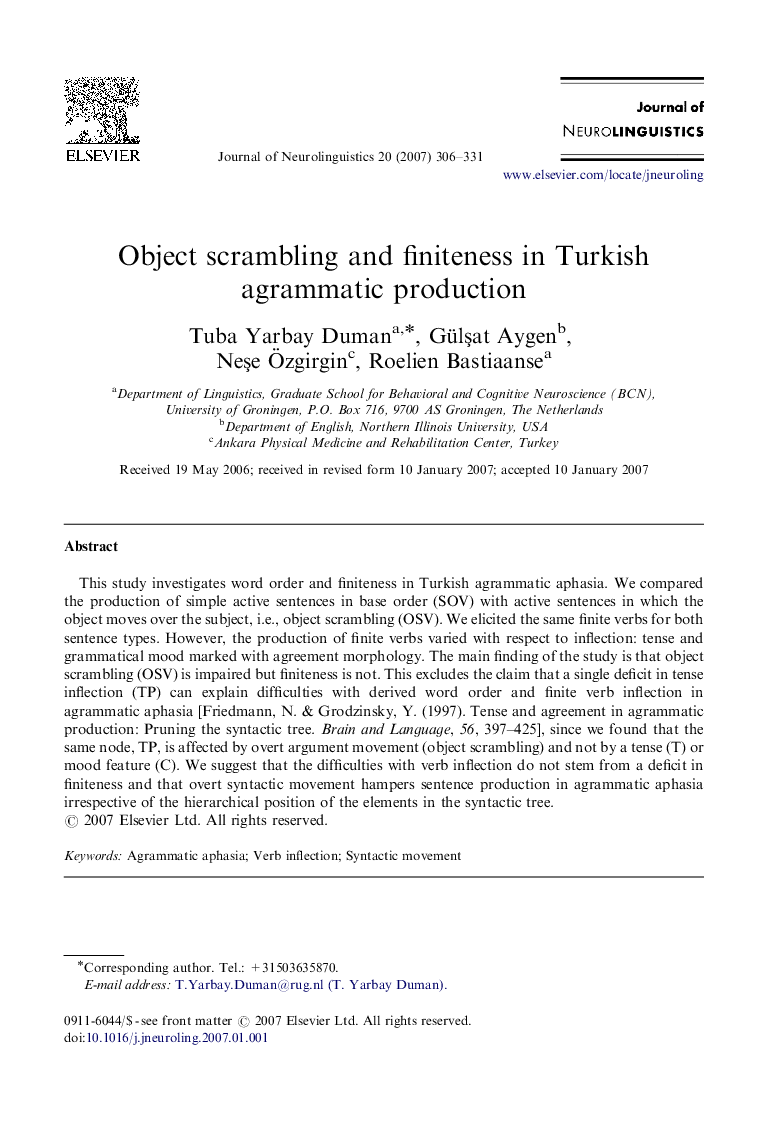| Article ID | Journal | Published Year | Pages | File Type |
|---|---|---|---|---|
| 912109 | Journal of Neurolinguistics | 2007 | 26 Pages |
This study investigates word order and finiteness in Turkish agrammatic aphasia. We compared the production of simple active sentences in base order (SOV) with active sentences in which the object moves over the subject, i.e., object scrambling (OSV). We elicited the same finite verbs for both sentence types. However, the production of finite verbs varied with respect to inflection: tense and grammatical mood marked with agreement morphology. The main finding of the study is that object scrambling (OSV) is impaired but finiteness is not. This excludes the claim that a single deficit in tense inflection (TP) can explain difficulties with derived word order and finite verb inflection in agrammatic aphasia [Friedmann, N. & Grodzinsky, Y. (1997). Tense and agreement in agrammatic production: Pruning the syntactic tree. Brain and Language, 56, 397–425], since we found that the same node, TP, is affected by overt argument movement (object scrambling) and not by a tense (T) or mood feature (C). We suggest that the difficulties with verb inflection do not stem from a deficit in finiteness and that overt syntactic movement hampers sentence production in agrammatic aphasia irrespective of the hierarchical position of the elements in the syntactic tree.
